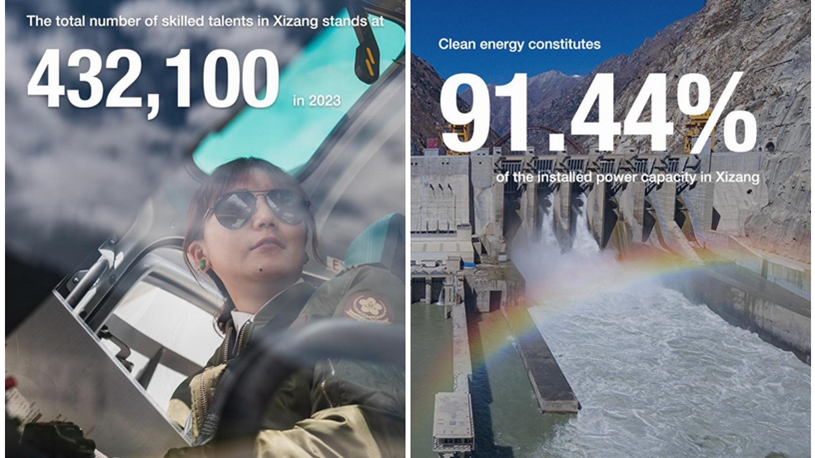
Two mothers feed their children with water inside the IDP camp in Doolow, a border town with Ethiopia, in Somalia, on March 20, 2017. (Xinhua/Sun Ruibo)
The crisis of food waste and loss has reached alarming levels globally, undermining efforts to eradicate hunger, poverty and environmental pollution, said the United Nations Environment Program (UNEP) in a new report launched Wednesday.
NAIROBI, March 28 (Xinhua) -- The crisis of food waste and loss has reached alarming levels globally, undermining efforts to eradicate hunger, poverty and environmental pollution, said the United Nations Environment Program (UNEP) in a new report launched Wednesday.
The UNEP Food Waste Index Report 2024, the second edition of this kind, was launched in Nairobi, the Kenyan capital, ahead of the International Day of Zero Waste which falls on Saturday.
The world wasted 1.05 billion tonnes of food in 2022, equivalent to 132 kg per person and one-fifth of all food available to consumers, says the report which was co-authored by UNEP and WRAP, a British environmental charity.
Inger Andersen, the executive director of UNEP, decried the growing crisis of food loss and waste in a world where 783 million people are affected by hunger annually while 150 million children are stunted due to chronic malnutrition.
"Food waste is a global tragedy. Not only is this a major development issue, but the impacts of this unnecessary waste are causing substantial costs to the climate and nature," Andersen remarked.
The report says households accounted for 60 percent of food waste in 2022, followed by food services players at 28 percent and the retail sector at 12 percent, adding that the toll of food waste and loss to the global economy stands at 1 trillion U.S. dollars.

A woman carrying a child is seen at a camp on the outskirts of Mogadishu, capital of Somalia, Jan. 13, 2022. (Photo by Hassan Bashi/Xinhua)
In addition, the report says, food waste and loss generates 8 percent to 10 percent of annual greenhouse gas emissions five times that of the aviation sector besides worsening pollution and biodiversity loss.
On average, households waste about 1 billion meals daily, equivalent to 79 kg per capita annually, according to the UNEP report which observed that hotter temperatures and the absence of cold chains had escalated the crisis.
The food waste challenge is no longer restricted to rich nations as it rapidly cascades into middle and low-income economies amid unsustainable consumption habits, UNEP said.
Rural areas in middle-income countries wasted less food, according to the report, which attributed the phenomenon to greater diversion of food scraps to pets, animal food, and home composting.
Published for the first time in 2021, the UNEP Food Waste Index Report seeks to track country-level progress to halve food waste by 2030 in line with the Sustainable Development Goal (SDG) 12.3.
"The quantities of edible food that are wasted are staggering," the report says. "As more countries start to measure their food waste in the retail and food service sectors, and as their measurements cover more subsectors than currently, food waste estimates are expected to increase due to broader coverage."
The report proposes the enactment of policies and legislation to tackle food waste at all levels besides embedding it in national action plans to combat pollution, climate change and habitat loss.
Harriet Lamb, the chief executive officer of WRAP, called for robust public-private partnerships and better coordination across value chains to stem food waste and avert an ecological crisis. ■











